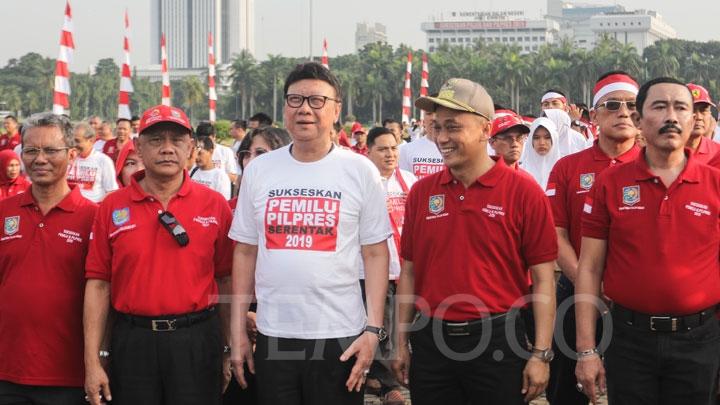E-voting Needs Public Trust, says Expert
Translator
Editor
12 May 2019 11:06 WIB

TEMPO.CO, Jakarta - The Indonesian Democracy Network (JaDi) of Yogyakarta said that e-voting could be an alternative for the Indonesian elections in the future but required public trust.
"The implementation of e-voting is closely linked to the trust the communities have. Many countries have applied this mechanism, but trust is still a problem," Mohammad Najib, presidium chairman of JaDi, said on Saturday.
The communities still hold the current manual election system accountable, from the voting process until the vote count. However, several people still suspect that there are some issues in the implementation.
E-voting is efficient, fast, easy and uncomplicated, according to him. However, he suggested the system should be implemented in certain regions, such as Yogyakarta, because it needs a lot of trust.
Read: House Speaker Opts for E-voting over Conventional Election
Hamdan Kurniawan, chairman of the Yogyakarta election office, said e-voting needs trust, as well as the procurement of facilities and infrastructure such as computers, software, Internet network, and capable human resources. Earlier, the Agency for Technology Assessment and Application (BPPT) said that an electronic election is spared from hacking because e-voting is done offline.
"During the voting process, (the computers/laptops) are not connected to any network," Andrari Grahitandanu, head of the e-electronic system program of BPPT, said after conducting an e-election simulation.
Hacking only occurs when it is done online, she said.
If Indonesia wants to implement an e-election next time, the General Election Commission (KPU) needs to issue a regulation over the e-electoral process from the e-verification of eligible voters and e-voting to vote counting and dispatching of vote results, she noted.
The e-voting process is efficient and easy because it does not use ballot papers that take time to be distributed, folded and inserted into ballot boxes.
The online network will be used only for dispatching of vote results to the KPU and the Election Supervisory Board (Bawaslu).
Voting results will be automatically accumulated and recorded and can be printed so there is no chance for human error during the entry of votes, as is the current situation where the ballot counting and entry processes are being done manually, she said.
ANTARA
















